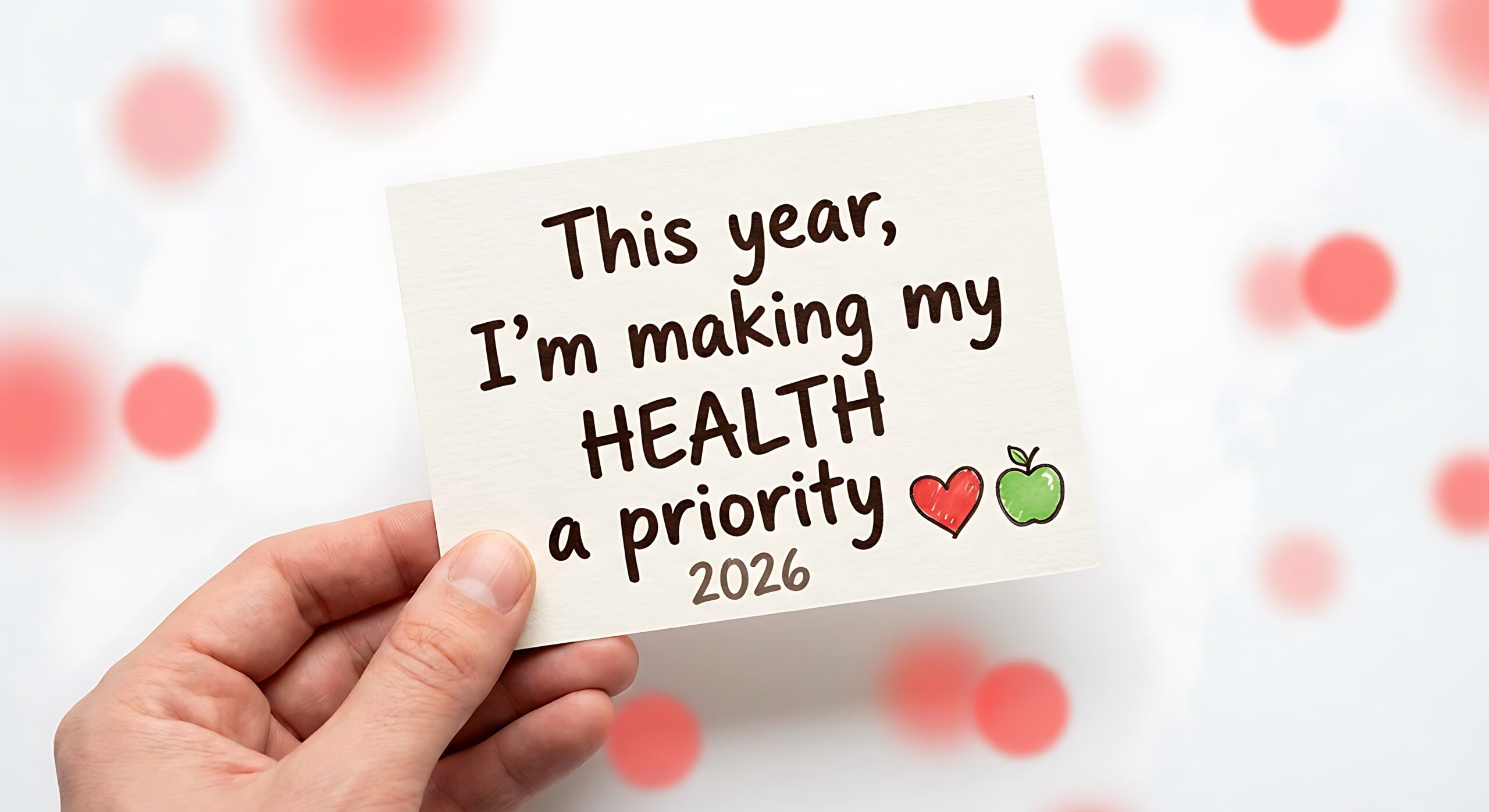More than a third of Americans are on a specific diet, with weight loss as a leading reason.
But most of those 1 million dieters will never reach their goal.
Why?
Because diets don’t empower, they restrict.
Even in scientific research studies that make sure their subjects carefully control their calories, food, and physical activities, the lost weight and other health benefits tend to disappear soon after the study is completed.
We’ve seen enough research to now know that restrictive diets are a thing of the past, and thank goodness! But we also know that throwing our hands up and quitting on our diet altogether doesn’t help move us forward in our health journey either.
So what actually works?
Fortunately, there are alternatives to dieting that will give you a much better chance of avoiding and even reversing weight gain, and we’re going to talk about one.
Stop Restricting and Start Nurturing
After nearly two decades in the health industry, I know that you can have long-term success with your health goals. The key? Shifting your focus from a dieting to a nutrition plan.
If the difference between the two feels a little foggy, here are some simple definitions taken straight from the dictionary:
Diet: a special course of food to which one restricts oneself, either to lose weight or for medical reasons.
Nutrition Plan: the process of providing or obtaining the food necessary for health and growth.
The Differences Between Diet and Nutrition Plan
Diets and nutrition plans have different goals. While the former’s focus is negative and restricting (I can’t eat that because I don’t want it to make me fat) the latter is full of positive motives and strategies (I’m going to fill my plate with food that makes me feel energized, healthy, happy, and beautiful).
A diet is that domineering teacher that loved the rules and judged those who didn’t follow them. A nutrition plan is that flexible friend who wanted you to be happy and had great suggestions.
Sounds good in theory, right? But what does a nutrition plan look like day to day?
Here are the basic building blocks of a nutritionally-strong day:
- Protein: Ideally, 30% of what you eat in a day should offer your body protein. Since every cell in the human body contains protein, you need protein in your diet to help your body repair cells and make new ones.
Protein helps build healthy bones, muscles, cartilage, and skin; repair your body tissue; oxygenate red blood cells; create enzymes for healthy digestion; and help to regulate hormones. (Pretty much all the important stuff). They’re also considered a “macronutrient,” meaning that you need it each day.
- Complex Carbohydrates: Carbs are the body’s main source of energy. But unlike refined sugars, complex carbs are full of vitamins, minerals and fiber that our bodies need. They’re digested slowly and supply a steady release of glucose into the bloodstream, giving us consistent energy over time.
Complex carbs are full of fiber and are filling. This makes them ideal for weight control. Like protein, carbohydrates are classed as a macronutrient—a major food type essential for survival. 40% of a nutritionally-strong day should be made up of complex carbohydrates.
- Essential Healthy Fats: Just like protein and carbohydrates, your body needs fat for energy. Fat is also essential when it comes to absorbing vitamins and protecting your heart and brain health.
For years, diet plans have been telling us that fat adds inches to our waistlines and causes health issues. While bad fats (like artificial trans fats and saturated fats) can be blamed for causing weight gain, clogged arteries, and an increased risk of some diseases, good fats do just the opposite!
Healthy fats (omega-3 fatty acids) play a big role in our brain health, mood management, energy levels, and even weight control. That’s why you need about 30% of what you eat each day to be made up of foods that are rich in omega-3 fatty acids.
- Water: Nourishing our bodies includes what’s on our plates as well as what’s in our glass. In fact, drinking enough water and staying hydrated is the first rule of health and nutrition. Our bodies can last for weeks without food, but we’ll be gone long before day five without water.
Dehydration affects us both physically and mentally. On the other hand, adequate intake of water has amazing health benefits. Water keeps your energy up, improves your mood and brain function, brightens your skin, protects your tissues and joints, flushes your body of toxins and waste, reduces sugar cravings, maximizes physical performance, aids in weight maintenance—the list goes on and on!
How much water should you have to maximize these benefits? Your strongest and most nutritious day should include 2-4 liters of water.
Love Your Body For Life
You want to look and feel healthy, energized, and fit, not just for the next few months, but for the rest of your life, right? Whatever you do to lose weight is what you have to do to keep it off. So if you can’t maintain the diet, you won’t maintain the results.
Compared to a restricting diet, a health-boosting nutrition plan is ideal if you’re looking for long-term lifestyle changes. Why?
- Working for your body: Diets can actually be nutrition-restrictive, cause low energy, and harm our bodies’ functions. Thankfully, our bodies won’t let us starve and will take many measures to make us eat if it feels like it’s not getting the nutrition it needs to keep working. But unfortunately, this can feel defeating when we’re trying to lose weight.
On the other hand, nutrition plans are hinged on non-refined foods that benefit the body greatly. These foods can help you reach a healthy weight, but they also will heal, fill, and satisfy your body along the way.
- Working with your body: Nutrition training helps your body develop healthier habits. By learning simple yet effective lifestyle changes, your body can easily sustain lasting results. A great nutrition plan will help you understand how your body works.
Eating nutritiously will retrain your body to work with you not against you, and to become a fat-burner not a fat-storer. But you have to first show your body that you’re working with it too.
- Don’t Stop, Swap! Creating a nutrition plan helps you find and address the weak points of your eating habits. But rather than enforcing hard and fast diet rules to your busy life, nutrition planning is about substituting unhealthy foods with something more nutritious.
Why does swapping work better than stopping? Our bodies have their own unique biological needs. Depending on your age, gender, genetics, environments, time of the month, or immune responses, your body will need and crave different foods.
For example, dark chocolate is one of the highest sources of magnesium, and it stimulates the production of endorphins. So chocolate elevates mood and reduces cramping. No wonder us ladies crave chocolate especially during one week in the month.
While diets might say that chocolate is off limits, nutrition plans can acknowledge that swapping that oversized bowl of chocolate ice cream for an indulgent bar of dark chocolate might give our bodies exactly what it needs!
Diets Were So 2020…
It’s time to happily leave nutrition-restricting diets in the rear view mirror. In 2021, how can you become more healthy, fit, and energized?
Let’s not slip down the diet slope ever again. Instead, let’s move forward on our health journeys, giving our bodies the care and nourishment it needs to thrive.
Need a little push to get going? Check out this 10 Day Detox Guide that will get you reset, primed, and ready to transition to a sustainable, life-giving nutrition plan.




